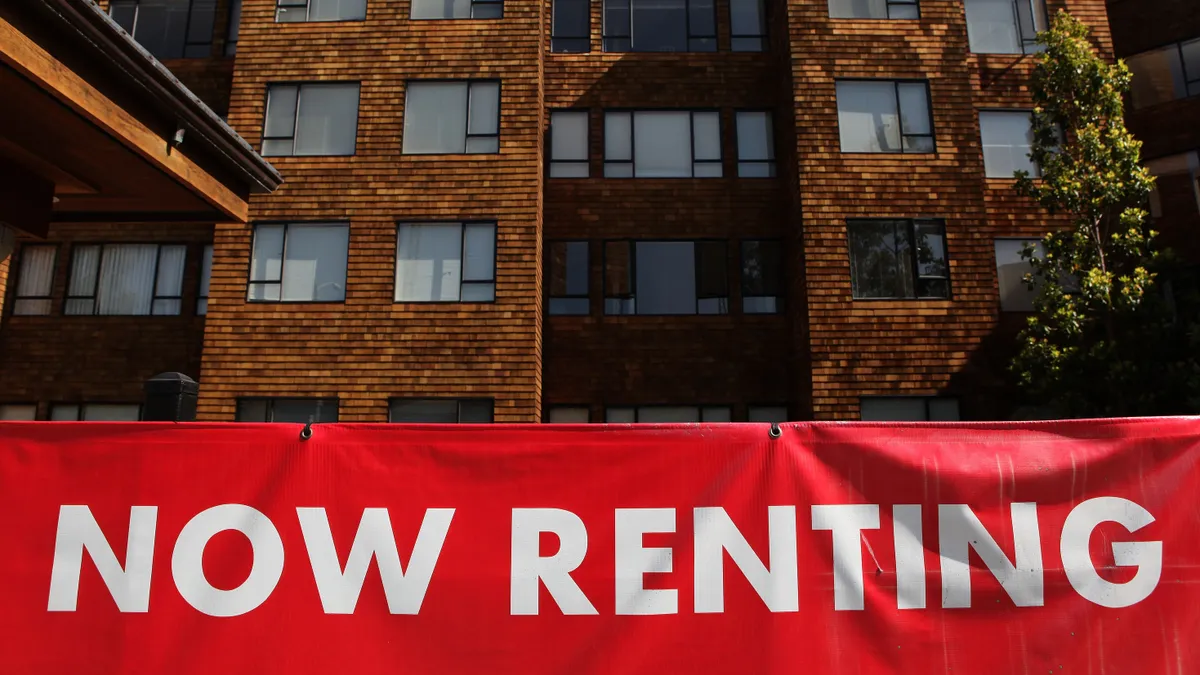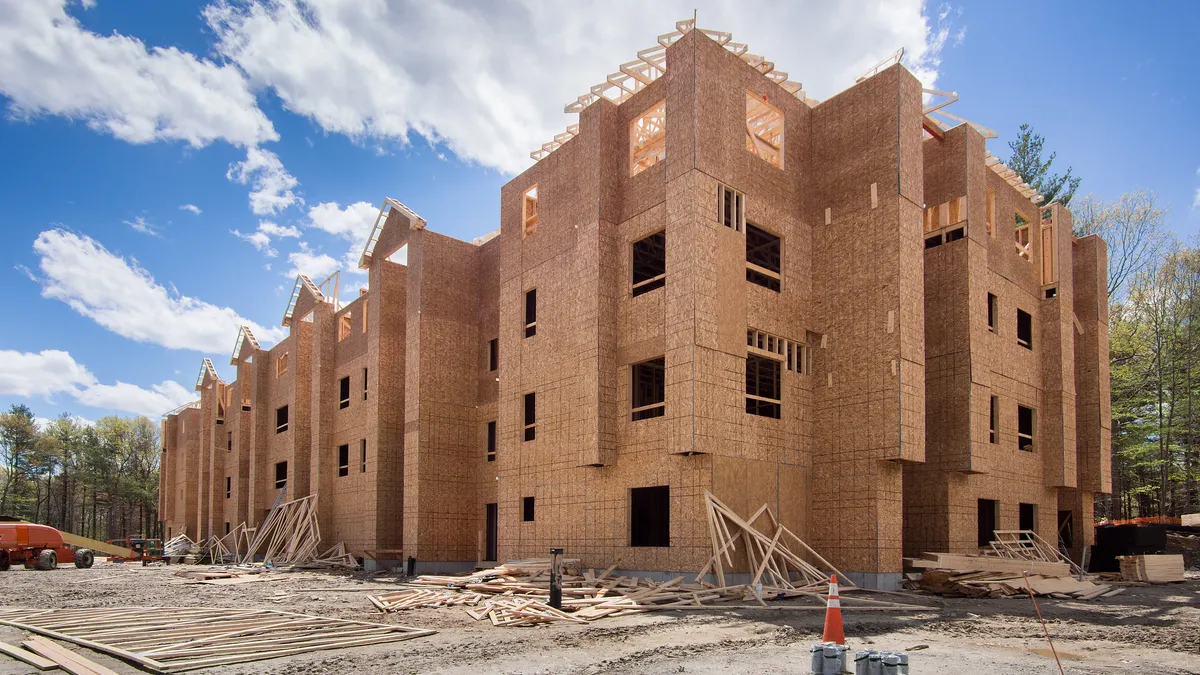The Blackstone Group is bullish on rental housing, Kathleen McCarthy, global co-head of Blackstone Real Estate, said during the opening session of the Urban Land Institute’s annual fall meeting in Dallas last week.
“What’s happening in the for-sale market in terms of the upward cost and ownership is really driving more demand for rental housing in all forms,” McCarthy said.

The global leader in real estate investing, with a portfolio worth $577 billion, is investing in rental housing as a key strategy for offsetting inflationary pressures. Blackstone, which generated nearly half its earnings in 2021 from real estate, is one of the largest owners of Low-Income Housing Tax Credit housing in the country and has also invested heavily in student housing, McCarthy said.
“We remain enthusiastic about all these forms,” she added, “but really with a focus on rental housing.”
In today’s inflationary environment, investors must focus on generating cash flow growth, McCarthy said. “You have, really, two levers, ultimately, to pull on to create value. One is multiples or cap rates, and one is cash flow. Obviously, as rates go up, cap rates are working against you. So, you need to really be able to compensate with cash flow growth.”
Real estate is in a better place than it has been during other economic downturns, she added, because the industry never returned to “those heady levels of new construction or lending that drove a lot of speculative construction” before the Great Recession.
“So, we’re entering this tougher economic moment with capital and with cranes,” McCarthy said. “Blackstone is more in check than it had been in prior cycles, and that, I think, positions our hard assets, our real estate assets, to do quite well.”
Asset classes where McCarthy says “the wind is at our back” include those with shorter-duration leases—including rental housing, warehouses and hospitality—that will capture cash-flow growth.
Expanding markets
For the past seven years, Blackstone has been building a portfolio that will perform in today’s environment of higher cap rates and rising interest rates, with 80% of its investment in rental housing, warehouses, hotels, lab/office space and data centers, McCarthy said. “That portfolio feels really well-designed to perform today.”
Over the past year, the Blackstone Real Estate Income Trust has added several large multifamily properties to its portfolio. It acquired multifamily REIT Preferred Apartment Communities in a $5.8 billion all-cash deal, adding 44 multifamily communities with nearly 12,000 units in Sun Belt cities; Philadelphia-based Resource REIT with 42 multifamily communities for $3.7 billion; and Bluerock Residential Growth REIT with 30 rental properties (11,000 units) for $3.6 billion.
Blackstone touts scale as one of its greatest strengths, stating that “the breadth of our existing portfolio gives us differentiated perspectives across sectors and geographies, while our significant discretionary capital base enables us to execute large and complex transactions.”
In today’s economic environment, rife with noise and mixed signals, “I think our scale is just pure advantage,” McCarthy said. With 54 portfolio companies in 27 countries and a heritage of drawing data out of that network, “we have this incredible access to information.”
“Particularly when there’s uncertainty, we have the benefit of every day, or certainly every week, looking at what our warehouses are telling us or what our rental housing assets are telling us and circulating that information so that we can make decisions on pivoting business plans to go toward the things that are working better.”
Pushing a pro-housing agenda
From a macro perspective, McCarthy believes finding ways to stimulate housing supply must be the nation’s top policy perspective.
“When we think about what is driving persistent inflation, so much of it comes back to the undersupply of housing that’s been building up since the financial crisis,” she said.
The United States faces an accumulated deficit of 4 million to 6 million housing units, and rising interest rates are constraining efforts to build more, McCarthy pointed out. “We know the cost of borrowing and the cost of building is exacerbating the supply challenge.”
At both the state and federal level, governments need to implement more tax credits that support new and affordable housing and transit-oriented development, McCarthy said, and find ways to penalize NIMBY communities that prevent it.
McCarthy enjoys engaging with policymakers on these issues and said Blackstone prioritizes that aspect of her job because it’s important to share the information it has gleaned from experience and its broader network.
“That’s one thing I would encourage all of you to do, is to be in conversation with government in terms of what you’re seeing and what you see as potential solutions, and to think about it holistically,” she said. “It’s not just about your business, but for the ecosystem of real estate and of the country overall.”
















